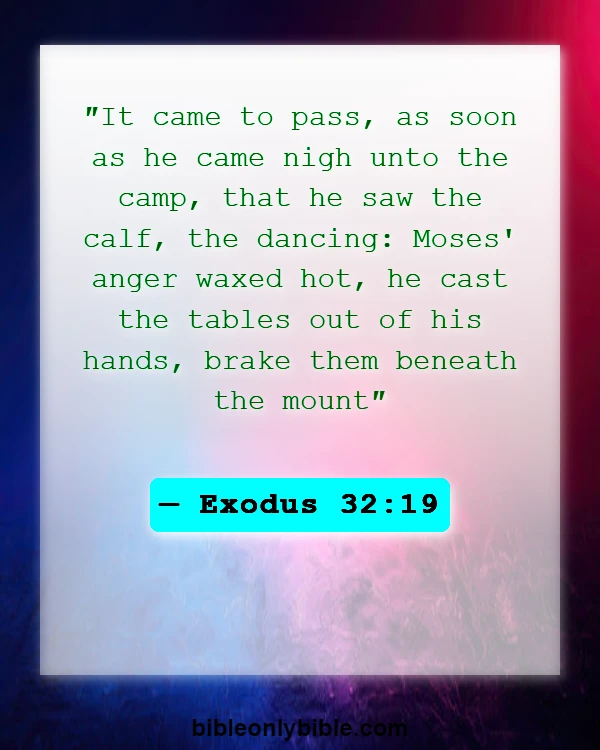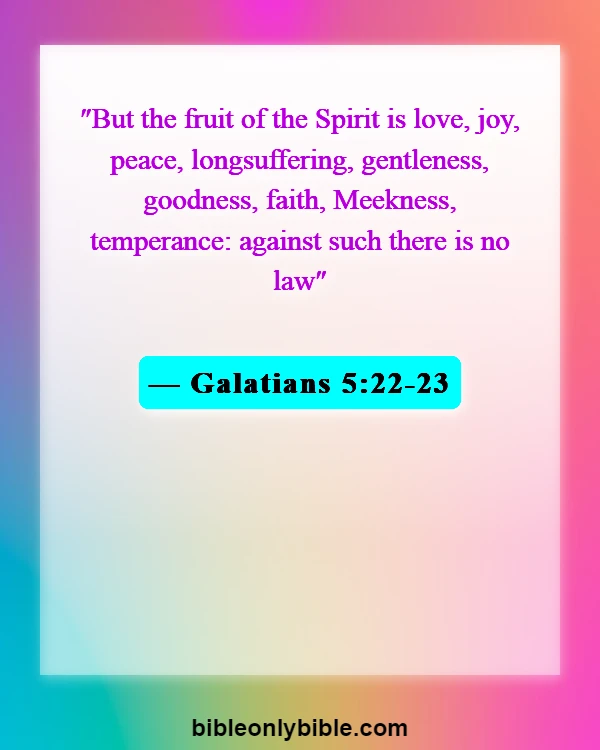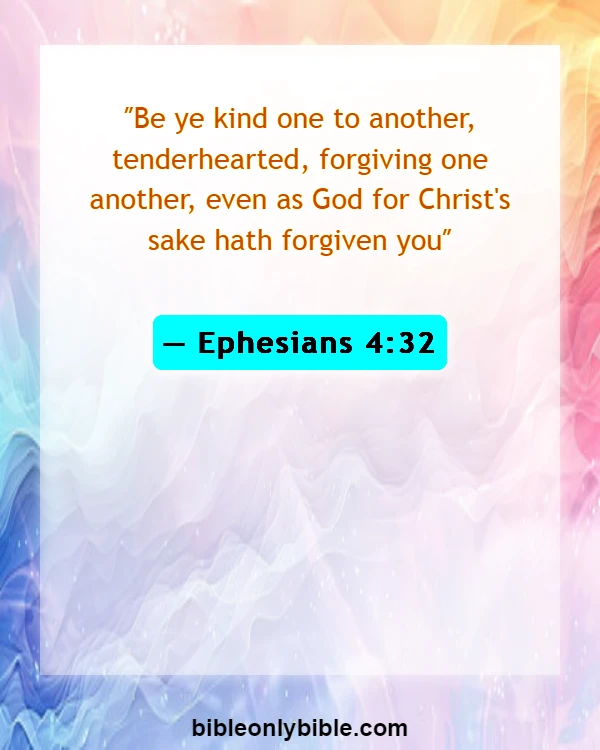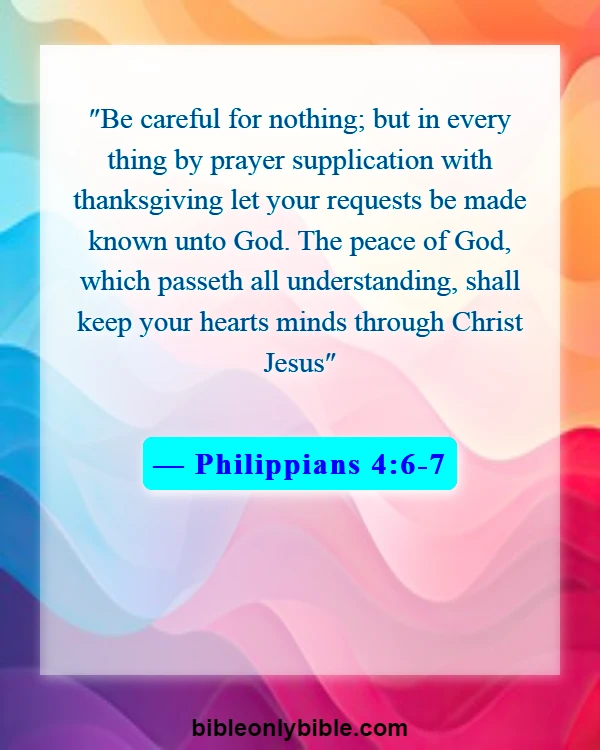Friends, if you’re searching for “Bible Verses About Be Angry But Do Not Sin,” today’s content is for you. Here, I share Bible verses that can really help you better understand this concept according to the Bible. These scriptures provide guidance on managing anger righteously, expressing emotions without falling into sin, and maintaining self-control in challenging situations. Let’s explore what the Word says about righteous anger and avoiding sinful responses.
Contents
- 1 What Does the Bible Say About Righteous Anger vs Sinful Anger?
- 1.1 Ephesians 4:26 – Be angry yet avoid sinning
- 1.2 James 1:20 – Human anger doesn’t achieve God’s righteousness
- 1.3 Proverbs 14:29 – Patience reflects understanding; quick temper leads to folly
- 1.4 Psalm 37:8 – Refrain from anger, avoid wrath, forsake rage
- 1.5 Ecclesiastes 7:9 – Quick temper leads to foolish actions
- 2 Biblical Examples of Being Angry Without Sinning
- 2.1 Mark 3:5 – Jesus’ anger at hardness, yet chooses healing
- 2.2 Nehemiah 5:6 – Nehemiah’s righteous anger against injustice
- 2.3 Exodus 32:19 – Moses’ anger at idolatry leads to just actions
- 2.4 2 Samuel 12:5-7 – David’s anger reveals his own sin
- 2.5 Matthew 21:12 – Jesus cleanses temple, righteous anger against corruption
- 3 How to Control Your Anger According to Scripture
- 3.1 Proverbs 15:1 – Gentle words defuse anger
- 3.2 James 1:19 – Be quick to listen, slow to speak, slow to anger
- 3.3 Colossians 3:8 – Rid yourselves of anger, rage, and malice
- 3.4 Proverbs 19:11 – Patience leads to forgiveness and overlooks offenses
- 3.5 Proverbs 29:11 – A fool vents anger; the wise quietly hold back
- 3.6 Galatians 5:22-23 – Fruit of Spirit: love, joy, peace, patience
- 3.7 Ephesians 4:31 – Remove bitterness, rage, anger, brawling, slander, malice
- 4 The Difference Between God’s Anger and Human Anger
- 4.1 Romans 1:18 – God’s wrath against unrighteousness and suppressed truth
- 4.2 Nahum 1:2-3 – God’s wrath is just, patient, and powerful
- 4.3 Psalm 7:11 – Righteous God judges and displays righteous anger
- 4.4 2 Kings 22:13 – Seek God’s guidance; distinguish divine and human anger
- 4.5 Jonah 4:4 – God questions Jonah’s right to be angry
- 4.6 Isaiah 54:8 – God’s anger brief; everlasting compassion follows
- 5 Bible Verses That Teach Us When Anger Is Justified
- 6 How to Forgive When You’re Angry – Biblical Guidance
- 6.1 Colossians 3:13 – Forgive others as the Lord forgave you
- 6.2 Matthew 6:14-15 – Forgive others to receive God’s forgiveness
- 6.3 Luke 6:37 – Forgive and avoid judgment to overcome anger
- 6.4 Ephesians 4:32 – Be kind, compassionate, forgiving as Christ forgave you
- 6.5 Mark 11:25 – Forgive others to receive God’s forgiveness
- 6.6 1 Peter 4:8 – Love covers a multitude of sins
- 7 What Does “Do Not Let the Sun Go Down on Your Anger” Mean?
- 8 Prayers and Bible Verses for Anger Management
- 8.1 Philippians 4:6-7 – Pray for peace beyond understanding
- 8.2 Psalm 34:14 – Seek peace and pursue it diligently
- 8.3 Matthew 5:9 – Blessed are peacemakers; called children of God
- 8.4 Romans 15:13 – Overflow with hope through the Holy Spirit’s power
- 8.5 Proverbs 15:18 – Patience calms strife; anger fuels conflict
What Does the Bible Say About Righteous Anger vs Sinful Anger?
Anger is a natural emotion, but the Bible guides us to differentiate between righteous and sinful anger. Righteous anger aligns with God’s will, opposing injustice and sin, while sinful anger leads to bitterness and harm. It’s essential to channel our anger towards constructive actions and avoid letting it control us, seeking wisdom and peace in every situation.
Ephesians 4:26 – Be angry yet avoid sinning

Be ye angry, sin not: let not the sun go down upon your wrath
Ephesians 4:26
Explanation:- This verse teaches that anger itself isn’t inherently sinful, but it’s crucial to handle it wisely. Righteous anger can motivate justice and change, while sinful anger leads to harm and discord. The challenge lies in managing emotions to avoid destructive actions.
James 1:20 – Human anger doesn’t achieve God’s righteousness

For the wrath of man worketh not the righteousness of God
James 1:20
Explanation:- This verse highlights the distinction between righteous and sinful anger. Human anger often leads to actions that don’t align with God’s will. It encourages self-control and seeking God’s guidance to ensure our responses reflect His righteousness, not our flawed human emotions.
Proverbs 14:29 – Patience reflects understanding; quick temper leads to folly

He that is slow to wrath is of great understanding: but he that is hasty of spirit exalteth folly
Proverbs 14:29
Explanation:- Patience demonstrates wisdom and self-control, while a quick temper often results in foolish actions. The Bible advises distinguishing between righteous and sinful anger, encouraging us to manage emotions thoughtfully to avoid sin. Understanding and restraint lead to spiritual growth and harmony.
Psalm 37:8 – Refrain from anger, avoid wrath, forsake rage

Cease from anger, forsake wrath: fret not thyself in any wise to do evil
Psalm 37:8
Explanation:- This verse encourages letting go of anger to prevent it from leading to sin. It distinguishes between righteous anger, which aligns with God’s justice, and sinful anger, which stems from personal grievances. By avoiding wrath and rage, one maintains peace and aligns with God’s will.
Ecclesiastes 7:9 – Quick temper leads to foolish actions

Be not hasty in thy spirit to be angry: for anger resteth in the bosom of fools
Ecclesiastes 7:9
Explanation:- A quick temper often results in impulsive, foolish actions. The Bible highlights the importance of controlling anger to avoid sin. Righteous anger aligns with God’s will, while sinful anger leads to destructive behavior. Practicing patience and self-control helps differentiate between the two.
Biblical Examples of Being Angry Without Sinning
Throughout the Bible, we find examples of individuals who experienced anger yet did not sin. These stories teach us that it’s possible to feel anger without letting it lead to sinful actions. By examining their lives, we can learn how to manage our emotions constructively and stay aligned with God’s will even when we are upset.
Mark 3:5 – Jesus’ anger at hardness, yet chooses healing

When he had looked round about on them with anger, being grieved for the hardness of their hearts, he saith unto the man, Stretch forth thine hand. he stretched it out: his hand was restored whole as the other
Mark 3:5
Explanation:- In this verse, Jesus’ anger at the Pharisees’ hard hearts reveals a righteous indignation. Despite His anger, He chooses healing over wrath, illustrating how one can experience anger without sinning by channeling it into compassionate and constructive actions.
Nehemiah 5:6 – Nehemiah’s righteous anger against injustice
I was very angry when I heard their cry these words
Nehemiah 5:6
Explanation:- Nehemiah’s anger in this verse is a response to the injustice and exploitation of the poor by their fellow Jews. It exemplifies how righteous indignation can lead to constructive action, aligning with the biblical principle of being angry without sinning by addressing wrongs with integrity and justice.
Exodus 32:19 – Moses’ anger at idolatry leads to just actions

It came to pass, as soon as he came nigh unto the camp, that he saw the calf, the dancing: Moses’ anger waxed hot, he cast the tables out of his hands, brake them beneath the mount
Exodus 32:19
Explanation:- Moses’ response to the Israelites’ idolatry illustrates righteous anger. Witnessing their sin, he broke the tablets, symbolizing their broken covenant with God. His anger wasn’t sinful but led to corrective actions, highlighting that anger, when directed against sin, can lead to just and necessary responses.
2 Samuel 12:5-7 – David’s anger reveals his own sin
David’s anger was greatly kindled against the man; he said to Nathan, As the Lord liveth, the man that hath done this thing shall surely dieAnd he shall restore the lamb fourfold, because he did this thing, because he had no pityAnd Nathan said to David, Thou art the man. Thus saith the Lord God of Israel, I anointed thee king over Israel, I delivered thee out of the hand of Saul
2 Samuel 12:5-7
Explanation:- David’s intense reaction to Nathan’s parable exposes his own guilt. His anger, initially directed at the injustice in the story, ironically highlights his unrecognized sin with Bathsheba. This illustrates how righteous anger can reveal personal wrongdoing, prompting introspection and repentance.
Matthew 21:12 – Jesus cleanses temple, righteous anger against corruption

Jesus went into the temple of God, cast out all them that sold bought in the temple, overthrew the tables of the moneychangers, the seats of them that sold doves
Matthew 21:12
Explanation:- In this passage, Jesus demonstrates righteous anger as He drives out those exploiting the temple for profit. His actions show that anger, when directed against injustice and corruption, can be justified and sinless, serving as a model for addressing wrongdoing without sinning.
How to Control Your Anger According to Scripture
Scripture offers timeless wisdom on managing anger, encouraging us to be slow to anger and quick to listen. By seeking God’s guidance, practicing patience, and maintaining a forgiving heart, we can control our emotions and prevent anger from leading us astray. It’s about finding peace in God’s presence even amidst life’s storms.
Proverbs 15:1 – Gentle words defuse anger

A soft answer turneth away wrath: but grievous words stir up anger
Proverbs 15:1
Explanation:- Gentle words have the power to calm and defuse anger, promoting peace and understanding. By choosing a soft response, we can control our emotions and prevent conflict from escalating, aligning with the biblical teaching to manage anger without sinning.
James 1:19 – Be quick to listen, slow to speak, slow to anger

Wherefore, my beloved brethren, let every man be swift to hear, slow to speak, slow to wrath
James 1:19
Explanation:- This verse encourages us to manage our reactions by prioritizing active listening and thoughtful responses. It teaches that controlling our anger involves patience and empathy, aligning with the biblical principle of maintaining peace and understanding in our interactions with others.
Colossians 3:8 – Rid yourselves of anger, rage, and malice

But now ye also put off all these; anger, wrath, malice, blasphemy, filthy communication out of your mouth
Colossians 3:8
Explanation:- This verse encourages believers to actively eliminate negative emotions such as anger, rage, and malice from their lives. By doing so, it aligns with the biblical principle of being angry but not sinning, guiding individuals to manage their emotions in a Christ-like manner.
Proverbs 19:11 – Patience leads to forgiveness and overlooks offenses

The discretion of a man deferreth his anger; it is his glory to pass over a transgression
Proverbs 19:11
Explanation:- Patience cultivates understanding and wisdom, enabling us to overlook offenses. This approach not only fosters forgiveness but also aligns with the biblical guidance to manage anger constructively, ensuring we do not sin in our response to provocation.
Proverbs 29:11 – A fool vents anger; the wise quietly hold back

A fool uttereth all his mind: but a wise man keepeth it in till afterwards
Proverbs 29:11
Explanation:- This verse highlights the importance of self-control in managing anger. It contrasts the impulsive reactions of a fool with the wisdom of restraint. By holding back anger, the wise demonstrate maturity and understanding, aligning with the biblical call to be slow to anger and avoid sin.
Galatians 5:22-23 – Fruit of Spirit: love, joy, peace, patience

But the fruit of the Spirit is love, joy, peace, longsuffering, gentleness, goodness, faithMeekness, temperance: against such there is no law
Galatians 5:22-23
Explanation:- Galatians 5:22-23 highlights the virtues that the Holy Spirit cultivates in believers, such as love, joy, and patience. These qualities help us manage emotions like anger by promoting self-control and peace, aligning our responses with Christ-like behavior and avoiding sin.
Ephesians 4:31 – Remove bitterness, rage, anger, brawling, slander, malice

Let all bitterness, wrath, anger, clamour, evil speaking, be put away from you, with all malice
Ephesians 4:31
Explanation:- This verse encourages believers to rid themselves of negative emotions and behaviors such as bitterness, rage, and malice. By doing so, it aligns with the broader biblical teaching to manage anger without sinning, promoting peace and harmony in relationships and communities.
The Difference Between God’s Anger and Human Anger
God’s anger is righteous and just, always aimed at correcting wrongs and leading us back to His path. In contrast, human anger often stems from personal grievances and can lead to sin. Understanding this difference helps us trust in God’s justice and strive to align our emotions with His divine guidance.
Romans 1:18 – God’s wrath against unrighteousness and suppressed truth

For the wrath of God is revealed from heaven against all ungodliness unrighteousness of men, who hold the truth in unrighteousness
Romans 1:18
Explanation:- Romans 1:18 highlights God’s righteous anger towards human unrighteousness and the suppression of truth. Unlike human anger, which is often flawed and impulsive, God’s wrath is just and purposeful, aiming to bring awareness to sin and the need for repentance.
Nahum 1:2-3 – God’s wrath is just, patient, and powerful
God is jealous, the Lord revengeth; the Lord revengeth, is furious; the Lord will take vengeance on his adversaries, he reserveth wrath for his enemiesThe Lord is slow to anger, great in power, will not at all acquit the wicked: the Lord hath his way in the whirlwind in the storm, the clouds are the dust of his feet
Nahum 1:2-3
Explanation:- God’s anger is righteous, marked by patience and justice, unlike human anger, which can be impulsive and flawed. While He is slow to anger, His power ensures that justice is served. This teaches us to align our emotions with His divine patience and fairness.
Psalm 7:11 – Righteous God judges and displays righteous anger

God judgeth the righteous, God is angry with the wicked every day
Psalm 7:11
Explanation:- This verse highlights the distinction between divine and human anger. God’s anger is just and righteous, reflecting His perfect judgment and justice. Unlike human anger, which can be flawed and impulsive, God’s anger is always guided by His holiness and righteousness, serving a purpose in His divine plan.
2 Kings 22:13 – Seek God’s guidance; distinguish divine and human anger
Go ye, enquire of the Lord for me, for the people, for all Judah, concerning the words of this book that is found: for great is the wrath of the Lord that is kindled against us, because our fathers have not hearkened unto the words of this book, to do according unto all that which is written concerning us
2 Kings 22:13
Explanation:- In this passage, Josiah seeks God’s guidance upon discovering the Book of the Law, illustrating the importance of discerning divine anger, which is just and corrective, from human anger, which can be impulsive and destructive. Seek God’s wisdom to navigate righteous paths.
Jonah 4:4 – God questions Jonah’s right to be angry
Then said the Lord , Doest thou well to be angry?
Jonah 4:4
Explanation:- In this verse, God gently challenges Jonah’s anger, highlighting the contrast between divine and human emotions. While human anger often stems from pride or selfishness, God’s anger is just and purposeful. This prompts reflection on how to manage our own emotions in a more godly manner.
Isaiah 54:8 – God’s anger brief; everlasting compassion follows
In a little wrath I hid my face from thee for a moment; but with everlasting kindness will I have mercy on thee, saith the Lord thy Redeemer
Isaiah 54:8
Explanation:- This verse highlights the contrast between divine and human anger. While God’s anger is momentary, His compassion is eternal. It teaches us that unlike human anger, which can be destructive, God’s anger serves a purpose and is always followed by His enduring love and mercy.
Bible Verses That Teach Us When Anger Is Justified
There are moments when anger is justified, particularly when it drives us to stand against injustice and wrongdoing. The Bible provides guidance on recognizing these moments and responding appropriately, ensuring our anger serves a righteous purpose rather than leading us into sin. Understanding this balance helps us act with integrity and compassion.
Psalm 4:4 – Reflect quietly; refrain from sin when angry
Stand in awe, sin not: commune with your own heart upon your bed, be still. Selah
Psalm 4:4
Explanation:- This verse encourages self-control in moments of anger, advising us to pause and reflect rather than react impulsively. By quietly contemplating our emotions, we can ensure that our anger does not lead to sinful actions, aligning our responses with a more thoughtful and righteous path.
Proverbs 16:32 – Patience and self-control surpass physical strength

He that is slow to anger is better than the mighty; he that ruleth his spirit than he that taketh a city
Proverbs 16:32
Explanation:- This verse highlights the value of patience and self-control, suggesting they are more powerful than physical might. It teaches that mastering one’s emotions, particularly anger, is a greater achievement than conquering external challenges, aligning with the principle of being angry but not sinning.
Matthew 5:22 – Anger without cause leads to judgment

But I say unto you, That whosoever is angry with his brother without a cause shall be in danger of the judgment: whosoever shall say to his brother, Raca, shall be in danger of the council: but whosoever shall say, Thou fool, shall be in danger of hell fire
Matthew 5:22
Explanation:- This verse cautions against harboring anger without a valid reason, warning that such feelings lead to judgment. It teaches that while feeling angry isn’t inherently wrong, it’s crucial to manage it wisely and avoid letting it result in sinful actions.
Romans 12:19-21 – Overcome evil with good, leave vengeance to God
Dearly beloved, avenge not yourselves, but rather give place unto wrath: for it is written, Vengeance is mine; I will repay, saith the LordTherefore if thine enemy hunger, feed him; if he thirst, give him drink: for in so doing thou shalt heap coals of fire on his headBe not overcome of evil, but overcome evil with good
Romans 12:19-21
Explanation:- This passage advises believers to refrain from taking revenge and instead trust God to handle justice. It encourages overcoming evil with good actions, reminding us that while anger may arise, it should not lead to sinful behavior, as ultimate vengeance belongs to God.
How to Forgive When You’re Angry – Biblical Guidance
Forgiving while angry is challenging, but the Bible reminds us of the freedom that forgiveness brings. By focusing on the grace we’ve received, we can extend that same grace to others, even when it’s hard. Prayer and seeking God’s strength are key to letting go of anger and finding peace through forgiveness.
Colossians 3:13 – Forgive others as the Lord forgave you

Forbearing one another, forgiving one another, if any man have a quarrel against any: even as Christ forgave you, so also do ye
Colossians 3:13
Explanation:- This verse encourages us to forgive others just as God has forgiven us. When anger arises, it offers guidance to release resentment and extend grace, reminding us that forgiveness is a divine act of love and restoration, fostering peace and unity.
Matthew 6:14-15 – Forgive others to receive God’s forgiveness

For if ye forgive men their trespasses, your heavenly Father will also forgive youBut if ye forgive not men their trespasses, neither will your Father forgive your trespasses
Matthew 6:14-15
Explanation:- This passage teaches that forgiving others is essential for receiving God’s forgiveness. It highlights the importance of letting go of anger and resentment, encouraging believers to practice forgiveness as a path to spiritual peace and alignment with God’s will.
Luke 6:37 – Forgive and avoid judgment to overcome anger

Judge not, ye shall not be judged: condemn not, ye shall not be condemned: forgive, ye shall be forgiven
Luke 6:37
Explanation:- This verse encourages us to let go of judgment and embrace forgiveness to overcome anger. By choosing understanding over condemnation, we align with God’s teachings, allowing His grace to guide us in releasing anger and fostering peace in our hearts.
Ephesians 4:32 – Be kind, compassionate, forgiving as Christ forgave you

Be ye kind one to another, tenderhearted, forgiving one another, even as God for Christ’s sake hath forgiven you
Ephesians 4:32
Explanation:- This verse encourages us to respond to anger with kindness and forgiveness, following Christ’s example. When faced with anger, it’s important to remember that forgiveness heals and reflects the love and grace Christ shows us, guiding us to harmony and peace.
Mark 11:25 – Forgive others to receive God’s forgiveness

When ye stand praying, forgive, if ye have ought against any: that your Father also which is in heaven may forgive you your trespasses
Mark 11:25
Explanation:- Forgiveness is essential for spiritual growth and harmony with God. When you’re angry, remember to forgive others as an act of love and obedience. This opens your heart to receive God’s forgiveness, promoting healing and peace within your relationships and with God.
1 Peter 4:8 – Love covers a multitude of sins

Above all things have fervent charity among yourselves: for charity shall cover the multitude of sins
1 Peter 4:8
Explanation:- This verse highlights the power of love in overcoming anger and facilitating forgiveness. When we prioritize love, it helps us move past grievances and avoid sinning in our anger, promoting healing and reconciliation in our relationships.
What Does “Do Not Let the Sun Go Down on Your Anger” Mean?
This biblical teaching encourages us to resolve conflicts quickly, preventing anger from festering into resentment. By addressing issues before the day ends, we can maintain healthy relationships and a peaceful heart. It’s a call to prioritize reconciliation and seek harmony in our interactions, reflecting God’s love in our lives.
Ephesians 4:26-27 – Control anger, resolve conflicts quickly

Be ye angry, sin not: let not the sun go down upon your wrathNeither give place to the devil
Ephesians 4:26-27
Explanation:- These verses encourage believers to manage anger wisely, urging them to address and resolve conflicts swiftly. By advising not to let the sun go down on anger, it emphasizes the importance of maintaining peace and preventing grudges from taking root, thus avoiding sin.
Matthew 5:23-24 – Reconcile before worship to maintain peace

Therefore if thou bring thy gift to the altar, there rememberest that thy brother hath ought against theeLeave there thy gift before the altar, go thy way; first be reconciled to thy brother, then come offer thy gift
Matthew 5:23-24
Explanation:- In this passage, Jesus emphasizes the importance of reconciliation before worship. By resolving conflicts and seeking forgiveness, we prevent anger from festering, aligning with the broader biblical principle of not letting the sun go down on our anger, thus maintaining peace and harmony.
Romans 12:18 – Live peacefully with everyone if possible

If it be possible, as much as lieth in you, live peaceably with all men
Romans 12:18
Explanation:- This verse encourages believers to strive for peace with others, acknowledging that while conflict may arise, the goal should always be reconciliation and harmony. It complements the idea of resolving anger swiftly, as suggested by not letting the sun set on unresolved disputes.
Hebrews 12:14-15 – Pursue peace and holiness; avoid bitterness’ root

Follow peace with all men, holiness, without which no man shall see the LordLooking diligently lest any man fail of the grace of God; lest any root of bitterness springing up trouble you, thereby many be defiled
Hebrews 12:14-15
Explanation:- Hebrews 12:14-15 encourages believers to seek peace and holiness, warning against allowing bitterness to take root. This aligns with the idea of resolving anger promptly, as lingering anger can lead to sin and disrupt relationships, much like the instruction to not let the sun set on anger.
Prayers and Bible Verses for Anger Management
Prayer is a powerful tool in managing anger, offering a space to seek God’s guidance and strength. Coupled with Bible verses, prayer helps us find calm and clarity, transforming our anger into peace. By inviting God into our emotional struggles, we can experience His transforming power and walk in His peace.
Philippians 4:6-7 – Pray for peace beyond understanding

Be careful for nothing; but in every thing by prayer supplication with thanksgiving let your requests be made known unto GodAnd the peace of God, which passeth all understanding, shall keep your hearts minds through Christ Jesus
Philippians 4:6-7
Explanation:- In times of anger, turn to prayer and trust God to guide your heart. Seeking His peace can transform your emotions, helping you manage anger without sin. Let God’s peace guard your heart and mind, offering calm and understanding beyond what seems possible.
Psalm 34:14 – Seek peace and pursue it diligently

Depart from evil, do good; seek peace, pursue it
Psalm 34:14
Explanation:- Psalm 34:14 encourages us to actively turn away from evil and seek peace with determination. In the context of managing anger, this verse reminds us to focus on peaceful resolutions and righteous behavior, emphasizing the importance of pursuing harmony in our relationships and actions.
Matthew 5:9 – Blessed are peacemakers; called children of God

Blessed are the peacemakers: for they shall be called the children of God
Matthew 5:9
Explanation:- Peacemakers are blessed, embodying God’s spirit by fostering harmony and understanding. In moments of anger, seek peace, reflecting divine love and wisdom. Practice patience and empathy, becoming a beacon of God’s grace, and nurturing a world that mirrors His kingdom.
Romans 15:13 – Overflow with hope through the Holy Spirit’s power

Now the God of hope fill you with all joy peace in believing, that ye may abound in hope, through the power of the Holy Ghost
Romans 15:13
Explanation:- Romans 15:13 encourages believers to find hope and joy through faith, empowered by the Holy Spirit. In the context of managing anger, this verse reminds us that divine strength enables us to maintain peace and avoid sin, even in challenging situations.
Proverbs 15:18 – Patience calms strife; anger fuels conflict

A wrathful man stirreth up strife: but he that is slow to anger appeaseth strife
Proverbs 15:18
Explanation:- This verse highlights the power of patience in diffusing tension, contrasting it with how anger can escalate conflicts. It encourages seeking inner peace and self-control, reminding us that patience can transform potentially volatile situations into opportunities for understanding and reconciliation.
